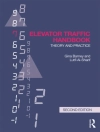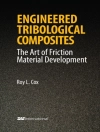This book provides a review of the latest research on emotion in engineering, with a particular focus on design and manufacturing.
Topics include experience, happiness, cognitive science, neuroscience, additive manufacturing, universal design, branding, teamwork. Throughout the book, the emotions of the end users of engineering products are discussed, as well as the perspective of the expert.
The book provides researchers, students, and practicing engineers with an opportunity to examine research and practice in engineering from a different perspective, and offers pointers to how to collaborate with people from other fields to help achieve a more connected society.
Tabla de materias
Chapter 1 Shuichi Fukuda, “From Product to Experience”.- Chapter 2 Shuichi Fukuda, “Grayscale: Its Emotional Significance”.- Chapter 3 Shuichi Fukuda, “Context-driven Engineering”.- Chapter 4 Takashi Maeno, “Four Factors of Happiness (Well-Being) Should be the Design Parameters of Service/Products”.- Chapter 5 Kazuhiro Ueda, “Cognitive Mechanism for Selecting New Products:A Cognitive Neuroscience Perspective”.- Chapter 6 Yoshiaki Kikuchi, “The Nostalgic Brain: Its Neural Basis and Positive Emotional Role in Resilience”.- Chapter 7 Anne-Lise Rias, Carole Bouchard, “Design for Additive Manufacturing: A Creative Approach”.- Chapter 8 Susan Kett, Sandro Wartzack, “Universal Design-An Old Fashioned Paradigm?”.- Chapter 9 Susan Kett, Sandro Wartzack, “Considering Users’ Emotions in Product Development Processes and the Need to Design for Attitudes”.- Chapter 10 Philip Farrugia, “Branding in Automotive Design”.- Chapter 11 Itsaso Gonzalez, “Brand Experience”.- Chapter 12 Gillian Hatcher, “Humor Processes for Creative Engineering Design”.- Chapter 13Aysar Ghassam, “Food for Thought: Using The RECIPE Initiative to Increase Students’ Motivation in Vehicle Design Group Work”.-Chapter 14 Josip Stjepandic, Josip Burusic, “Emotional Experience by Functional Digital Mock-up”.- Chapter 15Lee Suehye, Seiko Shirasaka, “Tangible Learning: How to Enhance.
Sobre el autor
After receiving Dr. Eng from University of Tokyo in 1972 and working at University of Tokyo, Osaka University and again University of Tokyo, Prof. Shuichi Fukuda joined Tokyo Metropolitan Institute of Technology (TMIT) as Professor in systems engineering. He served as Department Chair, Adviser to the University President, Dean of Engineering, Dean of Library and Information Systems and Director of Center for the University-Industry-Government Collaboration. During these years, he worked as Visiting Professor at Stanford University, West Virginia University and Osaka University. Since his retirement from TMIT in 2007, he has been working as Consulting Professor at Stanford University, Visiting Professor at Open University of Japan and Cranfield University, UK and a member of Science Council of Japan. He is now Adviser to the System Design and Management Institute, Keio University.
He is past President of ISPE (International Society for Productivity Enhancement), Vice President of the Reliability Society, IEEE and past Chair of Computers and Information in Engineering Division, ASME and Deputy Technical Group Leader, Member-at-Large in charge of Division Operations and Training, Systems and Design Group Operating Board, ASME. He is now leader of SIG on Emotional Engineering, the Design Society.
His research interests are systems engineering, design engineering, emotional engineering, collaboration engineering, reliability engineering and organizational management of engineering and technology.
He is member of Engineering Academy of Japan, Honorary Member of JSME and Fellow of ASME, IEICE (Institute of Electronics and Communication Engineers) and ISPE (International Society for Productivity Enhancement), Life Senior Member and IEEE Glory Member of Reliability Engineering Association of Japan.
He received more than 30 awards including ASME Curriculum Innovation Award Honorable Mention, ASME Distinguished Service Award and ASME Lifetime Achievement Award.












